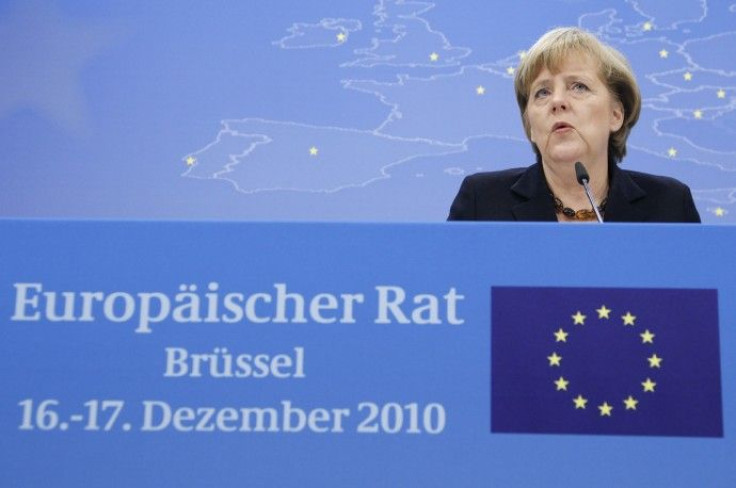Germany running out of patience with weaker euro nations

Although some progress appears to be being made in the euro zone sovereign debt crisis – including the passage of an austerity budget by the Greek Parliament today and a capital injection into Allied Irish Bank (NYSE: AIB) – the most important member of the euro currency bloc, Germany, is unlikely to foot the total bill that will be required to truly resolve this issue.
The recent euro summit on the problem resulted in an “mechanism framework” to prevent future crises, but that measure will not be put in place until 2013.
Bob Parker senior advisor at Credit Suisse told CNBC that Germany will never commit to paying the full cost of shoring up the balance sheets of the peripheral euro nations that are in the eye of this hurricane.
Similarly, John Wraith, fixed income strategist at Bank of America-Merrill Lynch global research, said Germany is running out of patience with having to put its creditworthiness on the line every time a another euro zone member gets into financial trouble.
Moreover, even with the bailouts already handed out to Greece and Ireland, the funding costs of the peripheral nations will remain unsustainably high.
Indeed, as Wraith indicated, the current system will leaves credit spread perpetually wider – the weaker nations will have it factored into their spreads that they are regarded as high-risk investments by bondholders.
“[It’s hard to see] how can [the peripheral euro nations] can ever compete on a level playing field with Germany, when they [are burdened with] much higher borrowing costs and very high outstanding debt levels,” Wraith said, adding that Germany won’t agree to do anything that would undermine its own creditworthiness.
In fact, consider that the while the 10-year yields for German government bonds are at 2.95 percent, the comparable figures for Greece and Ireland are currently about 12.10 percent and 9.17 percent, respectively.
© Copyright IBTimes 2024. All rights reserved.











